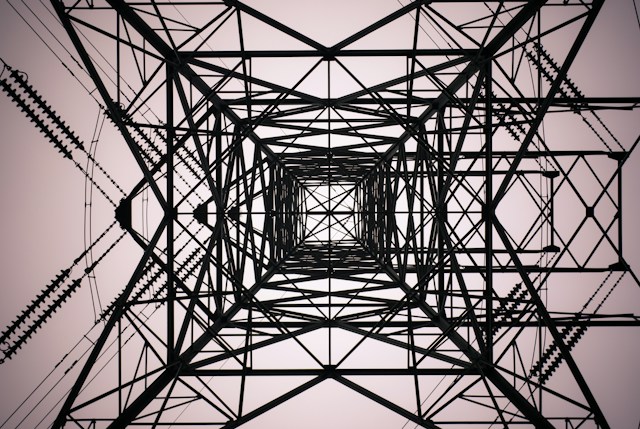What is the future of renewable energy technologies?

The evolution of our world is undeniably tethered to the energy that propels it. As we traverse further into the 21st century, the conversation surrounding renewable energy technologies and their future is gathering momentum. From solar to wind power, clean energy sources are primed to drastically reshape our world, steering us away from our carbon-intensive past towards a more sustainable, eco-friendly future.
The Ascendance of Solar and Wind Power Technologies
In the contemporary energy landscape, solar and wind technologies are the vanguards of the renewable revolution. These power sources have experienced significant growth, driven by advancements in technology, economies of scale, and supportive government policies around the globe.
En parallèle : Chatbots and the future of communication: what are the trends ?
Harnessing the Power of the Sun – Solar Energy
Solar energy technology has come a long way since its inception. Thanks to extensive research and development efforts, solar power is no longer a nascent concept but rather a viable electricity source for many households and businesses worldwide. The future of this technology lies in its versatility and adaptability.
As the cost of solar panels continues to plummet, their capacity to generate electricity only grows, pushing solar energy into the mainstream. Moreover, the development of solar windows and roads signifies a future where virtually any surface could be used to harvest solar energy. Furthermore, the advent of advanced storage solutions is addressing the intermittent nature of solar power, promising a future where solar energy can be consumed day or night.
Cela peut vous intéresser : How to use the MyChatbotGPT text generator ?
Riding the Winds of Change – Wind Energy
Wind energy is another renewable source that’s growing at an exponential rate. Wind farms, once a rare sight, are now a common feature of many landscapes, both on land and at sea. Continued advancements in turbine design and materials are leading to more efficient, powerful, and cost-effective wind energy solutions.
The future of wind power lies in both large-scale wind farms and smaller, localized installations. The development of airborne wind energy systems, where kites or drones capture wind energy at high altitudes, is an exciting prospect that could further boost this technology’s potential.
The Role of Emerging Renewable Technologies
As important as solar and wind power are in the renewable energy portfolio, they are not the only players in the game. It’s crucial to also pay attention to emerging renewable technologies, which could potentially play significant roles in our energy future.
Tidal and Wave Energy
Ocean energy, particularly tidal and wave energy, is an untapped resource that holds a lot of promise. Although currently less developed than solar and wind power, the predictability of the tides represents a stable, reliable source of renewable energy. With continued research and development, this form of power could provide substantial contributions to the global energy mix.
Geothermal Energy
Geothermal energy, derived from the Earth’s internal heat, is another promising renewable. Unlike solar or wind, geothermal energy is available 24/7, regardless of weather conditions. The issue of geographical limitation can be potentially solved through advanced drilling techniques or enhanced geothermal systems, making this form of power more widely accessible.
The Key to a Renewable Future: Energy Storage
As we delve deeper into the realm of renewables, the issue of energy storage comes to the forefront. The inherent variability of sources like solar and wind energy necessitates reliable storage solutions to ensure a steady supply of power.
Presently, lithium-ion batteries are the primary storage technology, having significantly improved in terms of performance and cost-effectiveness. The future, however, may see the rise of other storage technologies like flow batteries, thermal storage, or even hydrogen storage. These technologies have the potential to offer higher capacities, longer lifetimes, and possibly even lower costs, paving the way for a future where clean energy can be stored and dispatched as required.
The Global Impact of Renewable Energy Transition
The transition to renewable energy is more than just an energy industry trend. It signifies a global shift towards sustainability, with profound implications for the economy, society, and the environment, mostly the climate.
The growth of renewables is sparking the emergence of ‘green’ jobs, stimulating economic activity, and promoting social equity. Furthermore, the shift from fossil fuels to renewable energy represents a critical step in mitigating climate change, as it significantly reduces greenhouse gas emissions. This transition also brings about enhanced energy security and resilience, as renewable resources are evenly distributed across the globe and are immune to geopolitical tensions.
Embracing renewable energy technologies is more than an option—it’s a necessity for our planet’s future. The path towards this future may be laden with challenges, but the potential rewards promise a world where energy is clean, abundant, and equitable. As we continue to innovate, invest, and implement renewable energy projects, we gradually unlock the door to an era defined by sustainability, ushering in a future where the lights will never go out.
Fueling Transportation with Renewable Energy
Another crucial area where the future of renewable energy technologies is set to make significant strides is in the transportation sector. Currently, the transportation sector accounts for a substantial portion of global energy use and greenhouse gas emissions. Shifting towards renewable-powered transportation could significantly reduce these impacts and move us closer to a sustainable, low-carbon future.
The rise of electric vehicles (EVs) powered by renewable energy, particularly solar and wind power, is revolutionizing the industry. Battery technologies are continually improving, with lithium-ion batteries leading the charge. Increased energy density, faster charging times, and longer lifetimes are transforming electric vehicles from niche products into mainstream transportation options.
Moreover, the growth of biofuels, derived from renewable resources like plant and animal matter, offers another promising solution. Advanced biofuels, such as cellulosic ethanol or biodiesel, have the potential to replace or supplement conventional petroleum-based fuels. The production of biofuels also presents opportunities for agricultural and rural development, contributing to social and economic sustainability.
Furthermore, innovative concepts like solar-powered airplanes and ships are moving from the realm of science fiction to reality. While still in the early stages of development, these technologies could be another piece in the puzzle of a renewable-powered future.
Conclusion: The Inevitable Transition to Renewable Energy
The future of renewable energy technologies is, without a doubt, bright. With the urgent need to address climate change and move away from fossil fuels, the transition to renewable energy is inevitable. From solar panels illuminating homes to wind turbines powering industries, renewable technologies are transforming our energy landscape.
Emerging technologies such as tidal and wave energy, geothermal power, and renewable energy storage solutions are set to play significant roles in this future, providing reliable, round-the-clock power. The transportation sector is also seeing a renewable revolution, with electric vehicles and biofuels leading the way.
The transition to renewable energy represents more than just an energy shift. It is a fundamental transformation in the way we power our lives, with profound implications for the economy, society, and the environment. Renewable energy technologies promise a future where energy is not only abundant and clean but also equitable and resilient.
However, achieving this renewable future requires sustained efforts. It requires ongoing investment in research and development, supportive policies, and public awareness and acceptance. It is a journey with many challenges, but one that holds the promise of a sustainable, climate-friendly future.
As we move forward, we must remember that the future of energy is not just about technology. It’s about the choices we make as a society. And the choice to embrace renewable energy is a choice for a better, brighter future.
